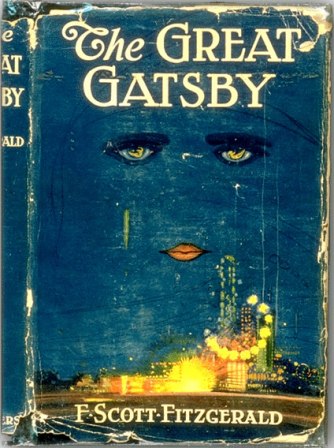
No 12: The Great Gatsby by F. Scott Fitzgerald
What’s it about?
The Great Gatsby is the story of Jay Gatsby, a man of great wealth who lives in a vast mansion in West Egg, a small village on Long Island near New York. The story is told by the narrator, Nick Carraway, who rents a small house next door to the Gatsby mansion and becomes intrigued by Gatsby’s affluent lifestyle, his lavish parties and the air of detachment maintained even as his house throngs with guests, celebrity and excess. As Carraway recounts his acquaintance and then uncertain friendship with Gatsby the tale of Gatsby’s doomed love affair and the mystery surrounding his past begins to unfold. Perhaps the most celebrated of Fitzgerald’s novels, The Great Gatsby chronicles the excesses and the misplaced certainties of the Jazz Age.
What’s it got to do with leisure?
Sporting imagery abounds, reflecting the moneyed, leisured lifestyle of the main characters but these are background notes rather than dominant themes. By way of example, Jordan Baker, the narrator’s girlfriend, is described thus: “I noticed that she wore her evening-dress, all her dresses, like sports clothes – there was a jauntiness about her movements as if she had first learned to walk upon golf courses on clean, crisp mornings.” However, one of the key moments in Carraway’s realisation that he was moving among people who are not quite what they seem or claim to be comes with a passing reference by Gatsby to baseball, the most hallowed and romantic of American sports. Gatsby introduces Carraway to Meyer Wolfheim, a business acquaintance who is “the man who fixed the World’s Series back in 1919”. Although the scam had become common knowledge, Carraway is staggered by the revelation that such a notorious scandal had such a simple origin: “It never occurred to me that one man could start to play with the faith of fifty million people – with the single-mindedness of a burglar blowing a safe.” Asked how he did it, Gatsby’s reply is succinct: “He just saw the opportunity.” When Carraway wonders why Wolfheim is not in jail Gatsby is matter-of-fact: “They can’t get him, old sport. He’s a smart man.”
Why should I read it?
First published in 1925, The Great Gatsby is considered by many to be Fitzgerald’s masterpiece, moving one commentator to describe it more than half a century after it appeared as “the most perfectly crafted work of fiction to have come out of America”. Perhaps unusually for a novel with genuine claims to greatness, The Great Gatsby is not hugely long nor does it appear to offer great complexity. The plot is essentially simple, turning on a case of the mistaken identity of a car driver, and the language is highly readable. However, the apparent simplicity of plot and language belies the craft of the structure and the writing. Fitzgerald’s writing is deceptively skilled, free of obvious literary flourishes but conveying layer upon layer of texture through his measured, consciously understated prose.
The revelatory power of light into dark shadows, that appearances do not always survive close scrutiny, is what The Great Gatsby is about. The character of Gatsby is slowly revealed through the slow realisation of the narrator who begins to see that behind Gatsby’s outward demeanour of style, wealth and grace is a man who is capable of both naivety and wickedness. Ultimately Carraway discovers the darkness behind the sunlit façade and is appalled by what he finds but the character of the narrator is also revealed. As he is slowly drawn into Gatsby’s world and that of his associates, Carraway displays a naivety of his own. His claim that “I disapproved of him from beginning to end” is a statement that may not bear close examination.
As well as a tragic tale of flawed character, The Great Gatsby is a tale of its time. Fitzgerald moved in the circles he describes here, living the life of wealth and glamour. His intimate knowledge of the age of Gatsby underpins the novel, creating a powerful feeling of intimate observation that ultimately becomes claustrophobic. Its themes of wealth – “Gatsby was overwhelmingly aware of the youth and mystery that wealth imprisons and preserves” – and decline – “So we drove on towards death through the cooling twilight” – are perhaps easily divined but Fitzgerald’s writing is nonetheless compelling. Although a story of east coast affluence, The Great Gatsby is as much about mid-west sensibilities as the excesses of wealth.
the leisure manager’s library
An occasional series offering a guide to leisure-related literature